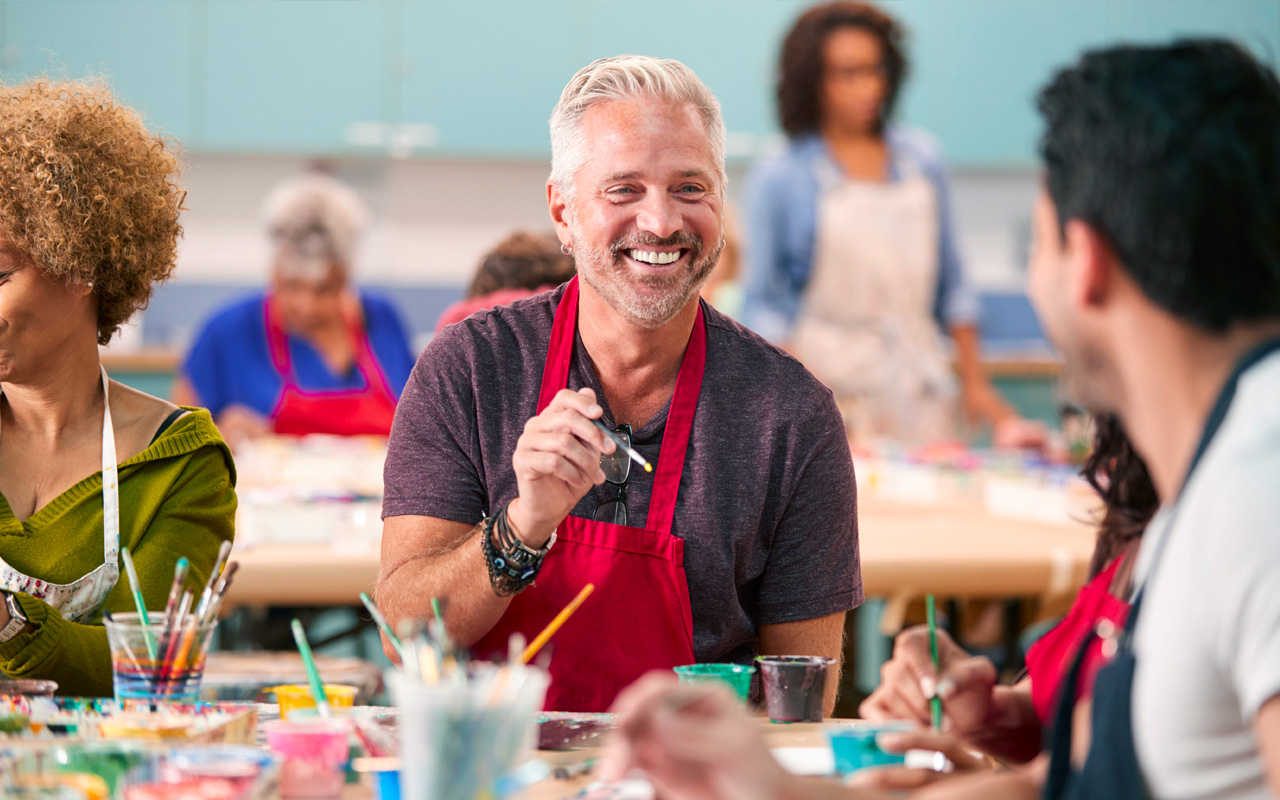How Your Relationships Affect Your Health

When you think about risks to your health, loneliness and social isolation may not come to mind. But lacking social connections—your ties to family, friends, and community—can be as harmful to overall health as smoking up to 15 cigarettes a day.1
That fact is included in a 2023 Advisory from the U.S. Surgeon General about the public health crisis of loneliness and isolation in our country. Even before the COVID-19 pandemic, about half of adults reported feeling lonely—and that takes a serious toll on our mental and physical health.
In his report, the Surgeon General, Dr. Vivek Murthy, says, “Our individual relationships are an untapped resource—a source of healing hiding in plain sight. They can help us live healthier, more productive, and more fulfilled lives.”2
5 tips for feeling connected
These tips, adapted from Dr. Murthy’s report, can help you strengthen your connections and create new ones—as well as help children do the same. You’ll also find ways that your BCBSRI health plan can help.
1. Take time each day to reach out to a friend or family member.
That could be anything from just checking in to meeting up in person. During that time, try to avoid distractions, such as multitasking, so you can focus on your time together. If you’re a parent, set aside regular times—such as an afternoon walk or dinnertime—to talk with your child. It’s also good to encourage them to stay in touch with friends and family.
2. Expand your social circle by participating in local groups or taking classes.
Whether you enjoy running or knitting or painting, there are local groups and workshops you can join. Local libraries, community organizations, and senior centers often offer a variety of events. Children can also benefit from structured activities such as sports, community activities, and mentorship programs. And it can be fun to do activities as a family.
3. Be mindful of technology use.
Harmful and excessive social media use and too much time in front of screens can make you feel disconnected. The Surgeon General’s report recommends delaying the age at which children join social media platforms as well as monitoring and decreasing screen time in favor of positive, in-person experiences.
4. Look for ways to serve and support others.
Bringing a meal to your aunt. Raking the leaves for your neighbor. Volunteering at a food bank. It can help you—and the person(s) you’re helping—feel a sense of community. And it’s something you can do with your child or another loved one.
5. Be open with your healthcare provider if you are lonely or experiencing significant social changes in your life.
This can help them understand the potential impacts to your health and offer recommendations to help. It’s also important to talk with children or other loved ones to understand if they’re struggling with loneliness or isolation and to destigmatize talking about these feelings. Watch for potential warning signs, such as increases in time spent alone, too much time spent online, or limited interactions with friends.
How your BCBSRI plan can help
Your health plan includes programs that can help build a sense of community—and we can also connect you with mental health assistance if you’re feeling lonely or isolated.
- Free fitness and healthy living classes at Your Blue StoreSM
Every week, we offer dozens of free classes to members at our five store locations—in Cranston, East Providence, Lincoln, Narragansett, and Warwick. You can choose everything from yoga to meditation to cooking demos. Many members who take our classes build friendships that extend beyond the stores. Sign up for a class.
- Coverage for mental health conditions
Treatment can make a tremendous difference in your mental health. To learn about the different options available, call BCBSRI at 1-800-274-2958 or visit our mental health page.
If you are experiencing thoughts of suicide, a mental health or substance use crisis, or any other kind of emotional distress, call or text 988 for quick access to counseling help.
- A how-to guide for parents
With the challenges of the last few years, more children and teens are experiencing anxiety, depression, and substance use disorder. BCBSRI put together a guide to help you locate the care your child needs. Learn what questions to ask and what resources are available in schools, in the community, and through your BCBSRI health plan. Read A Parent’s Guide to Mental Healthcare in Rhode Island.
- A resource for caregivers
Taking care of a loved one can be stressful and isolating. You can find resources to make it a little easier on our website for caregivers. It includes information on protecting your well-being and the well-being of your loved one. Visit our caregiver site.
1Holt-Lunstad J, Robles TF, Sbarra DA. Advancing social connection as a public health priority in the United States. Am Psychol. 2017;72(6):517-530
2Our Epidemic of Loneliness and Isolation (hhs.gov)